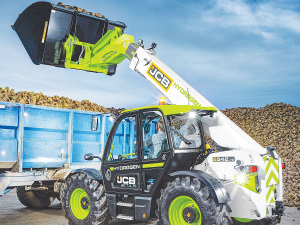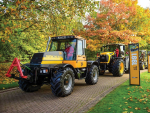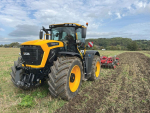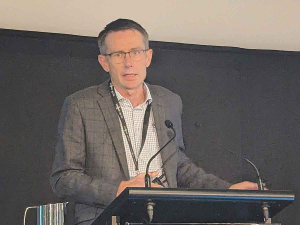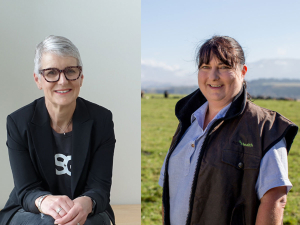While the automobile industry heads full tilt down the electrification route, heavier industries such as trucking and construction appear to prefer a hydrogen-fuelled future.
UK-headquartered JCB is currently evaluating a Loadall 542-70 prototype, offering 4.2-tonne lift and seven-metre reach, burning hydrogen instead of diesel.
JCB notes the “green machine” – as well as ditching the more normal JCB yellow for a lime green similar to a competitor – does everything that would be asked of its diesel-powered equivalent, with the benefits of zero emissions and a lot less noise.
Developed by engineers at the JCB engine factory in Derbyshire, the reengineered 4.8-litre (94hp/75kW) four-pot block is said to be far less complicated than a hydrogen-powered fuel cell and lends itself to incorporation into all types of traditional powertrains.
The same 4.8-litre hydrogen block has also been installed in several other JCB machines, including a backhoe loader, with the fuel stored in a variety of locations – not always in the engine compartment – providing sufficient capacity for the machine to undertake a full day’s work.
Moving forwards, JCB is investing £100m on a project to produce what it calls “super-efficient hydrogen engines”, with a team of 100 engineers already working on the development, with another 50 being recruited. At this stage, the company is targeting late-2022 when the first hydrogen powered machines will be available for sale, incorporating a new block that is expected to cost roughly the same as a diesel equivalent.





